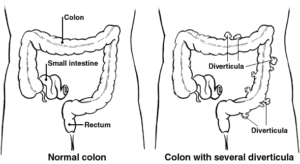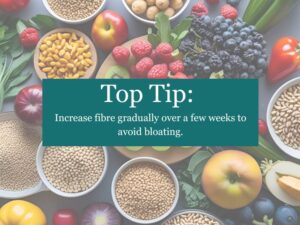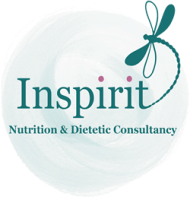You’ve Just Been Diagnosed with Diverticular Disease – What Now?
Changes in bowel habits, unexplained abdominal pain, when these symptoms crop up, it’s easy to assume the worst. So if you’ve just been told you have diverticular disease, you might feel relieved to have a diagnosis, but unsure about what to eat, what to avoid, or how to prevent diverticulitis flare-ups.
You might find yourself drowning in advice (not all of it helpful) and even professionals don’t always agree. It’s no wonder it feels confusing.
If you’re sitting there Googling what you can and can’t eat, trying to make sense of it all you’re not alone. Let’s cut through the noise and talk about what actually helps.
What Is Diverticular Disease?
Let’s break down the language first:
- Diverticula are small pouches that can form along the walls of the large intestine.
- Diverticular disease (also known as diverticulosis) is when you have these pouches but no infection.
- Diverticulitis is when those pouches become inflamed or infected.
By age 50, about half of us will have diverticula. By age 80, it’s closer to 70%.
Here is a picture from patient.co.uk that shoes that diverticula look like:

What Causes Diverticular Disease?
The most likely cause? Low fibre intake.
When there isn’t enough fibre, stools become harder and drier. This slows everything down, increases pressure in the colon, and can lead to those little pouches forming.
Symptoms and Diagnosis of Diverticular Disease
Diverticular disease often mimics IBS:
- Cramping (especially on the left side)
- Bloating
- Diarrhoea or constipation (sometimes both)
A colonoscopy usually confirms the diagnosis.
If you ever notice persistent pain, fever, or blood in your stool, these could be signs of diverticulitis. About 1 in 5 people with diverticular disease will have a flare-up at some point.
How to Reduce the Risk of Diverticulitis Flare-Ups
- Eat a fibre-rich diet
- Drink 6–8 cups of fluid daily
- Move your body regularly
- Avoid smoking
What Should You Eat with Diverticular Disease?
A high-fibre diet is key. Here’s what that looks like in real life:
Whole Grains
- Wholemeal pasta
- Brown rice
- Oats
- Whole wheat bread
High-Fibre Breakfast Cereals
- Porridge
- Bran flakes
- Weetabix
Fruit and Vegetables
Aim for at least 5 portions per day. A portion might be:
- 1 medium fruit (e.g. banana, orange)
- 2 small fruits (e.g. plums, satsumas)
- A cereal bowl of leafy greens
- 3 heaped tablespoons of cooked veg or legumes
- A handful of berries or grapes
- A tablespoon of dried fruit

Don’t Skip the fluid
Fibre without fluid is like trying to wash up without water. It won’t work and could actually make constipation worse.
FAQs: Let’s Bust Some Myths
Can I Eat Nuts and Seeds with Diverticular Disease?
YES. The old advice to avoid them is outdated. They don’t get stuck in diverticula. Constipation is the real issue.
Is Popcorn OK?
YES. Same story as above.
Should I Avoid Dairy?
Unless you’re also been diagnosed as lactose intolerant (by a health professional), there’s no reason to cut dairy. You’d miss out on valuable nutrients.
What Are the Best Fruits During a Flare-Up?
Go for bananas, tangerines, and berries gentle on the gut.
What Are the Best Veg During a Flare-Up?
Cooked carrots, courgette, aubergine, broccoli. Steer clear of raw, crunchy veg for a bit.
Can I Have Spicy Foods?
It depends. Some people tolerate them fine; others don’t. Tune into how your body responds.
When to Work with a Dietitian
If you’re juggling diverticular disease, IBS or other medical conditions, navigating fibre can feel like walking a tightrope. What helps one might worsen the other.
You don’t have to figure this out alone and you shouldn’t have to.
A dietitian can help you:
- Identify well-tolerated fibre sources
- Personalise your intake
- Prevent flare-ups without sacrificing comfort
Book a free discovery call and we’ll figure out the next step together, so you can stop guessing and start feeling better.
Helpful Links and Resources
Trusted External Sites




